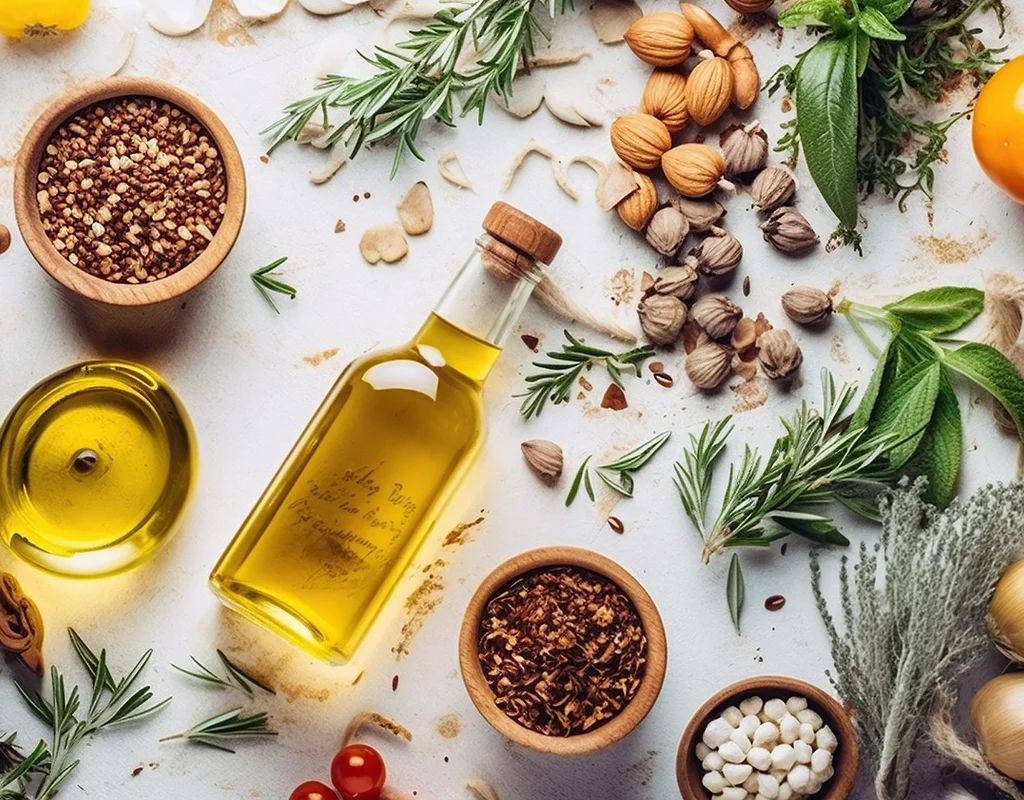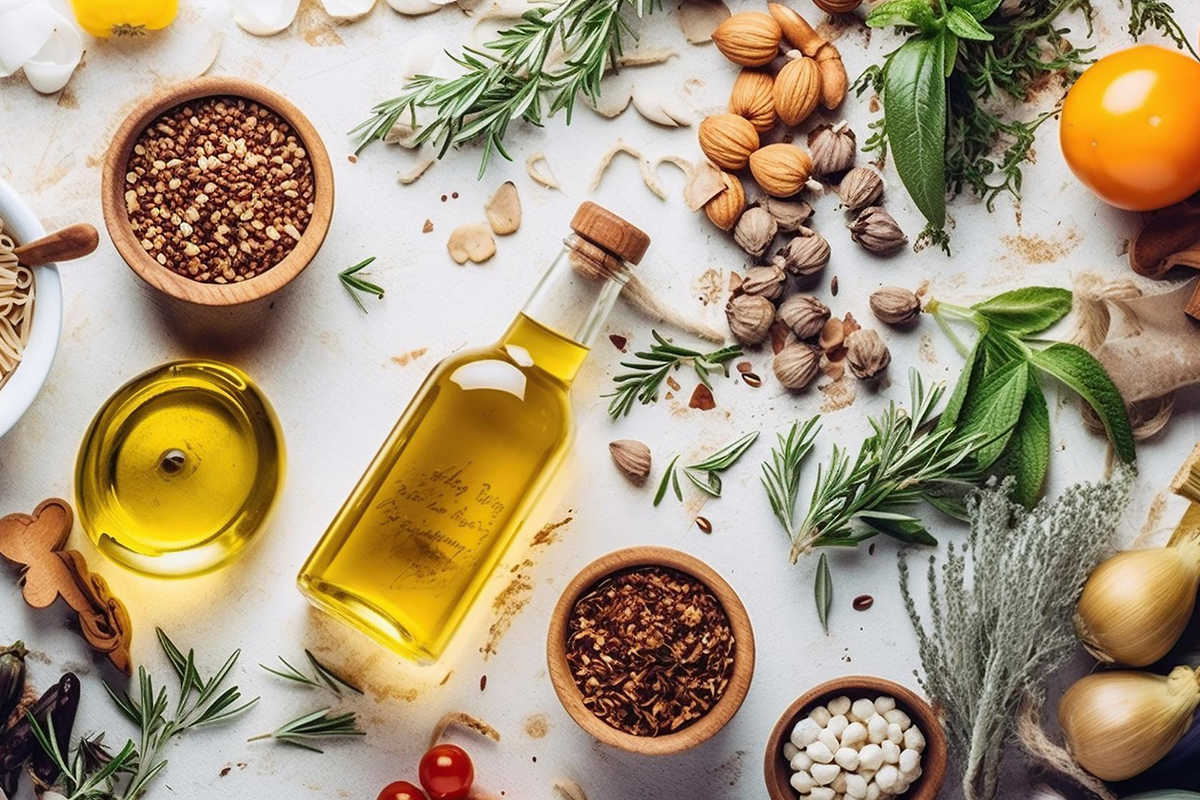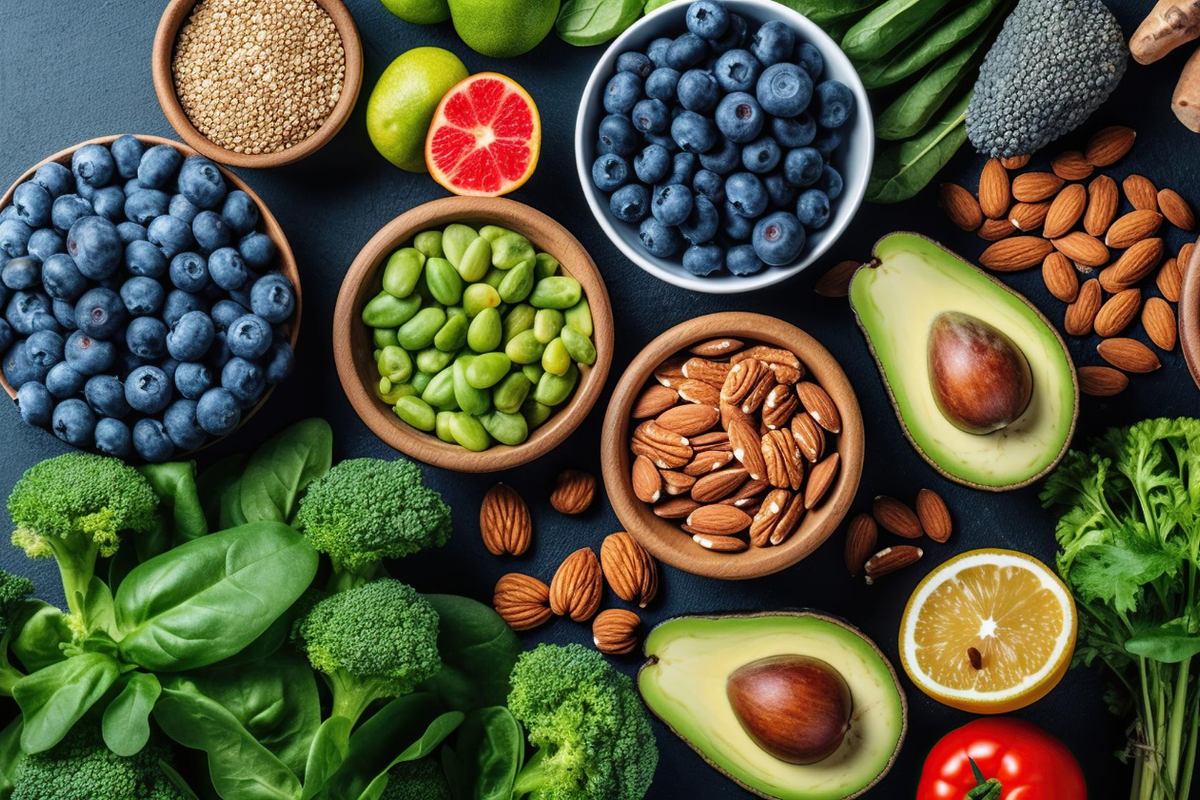
The sizzle of a stir-fry, the tang of a salad dressing, the golden glow of roasted vegetables – cooking oils play a pivotal role in these culinary symphonies. But amidst the vast array of bottles lining supermarket shelves, two titans clash in an eternal debate: olive oil vs. vegetable oil. Which reigns supreme in the kingdom of taste and health? Fear not, brave chefs, for this guide will untangle the myths and empower you to wield these oils like culinary maestros!
Vegetable Oil: The Versatile Companion
Born from seeds, grains, and even nuts, vegetable oils boast a diverse personality. Soybean, sunflower, canola – each delivers a neutral canvas for baking, where textures sing and flavors remain unchallenged. Their high smoke points make them the pyromaniacs of the kitchen, fearlessly facing the scorching heat of deep-frying. But beneath their versatility lies a potential downside – some, like corn oil, harbor higher levels of saturated fat, the foe of a healthy heart.
Olive Oil: The Mediterranean Muse
From the sun-kissed groves of the Mediterranean emerges olive oil, a liquid ode to flavor. Extra virgin, like a whispered poem, sings of grassy notes and peppery whispers. Virgin, its voice bolder, offers a fruity crescendo. These are the oils for salads, marinades, and the delicate kiss of a roasted vegetable. They whisper promises of heart health, with their abundance of monounsaturated fats and potent antioxidants. But their lower smoke point demands respect – high heat can singe their delicate melody.
Now, let’s explore the ideal uses for each oil:
- Salad Dressing:
- Recommendation: Extra virgin olive oil is a healthy source of fats, linked to potential benefits such as reduced body mass index, blood pressure, and lower risks of certain cancers and cardiovascular diseases. It is best not to substitute olive oil for vegetable oil in salad dressings.
- Marination:
- Suggestion: While both vegetable and olive oils work for marination, the latter adds an extra layer of flavor. Olive oil, with its peppery taste, enhances the overall profile of the dish and may contribute to reducing the risk of obesity and type 2 diabetes.
- Sauteing and Stir-Frying:
- Guidance: For a healthy option, choose olive oil. Alternatively, sunflower oil is a cost-effective vegetable oil that retains high vitamin C content during stir-frying.
- Baking:
- Insight: Bakers often prefer neutral-flavored vegetable oils for baking to maintain the desired taste. However, a partial replacement of butter with extra virgin olive oil in certain recipes has shown improved properties.
- Deep-Frying:
- Consideration: Olive oil has a lower smoke point compared to some vegetable oils, making it less ideal for deep-frying. However, evidence suggests that olive oil remains stable when heated, making it a healthier option. Mustard oil is an affordable and nutritious alternative for deep frying.
Differences Between Olive Oil And Vegetable Oil:
- Source and Types:
- Olive oil is extracted from the fleshy part of olives, available in extra virgin, virgin, and blended variants.
- Vegetable oils, sourced from seeds, nuts, and grains, can be processed (hot-pressed) or cold-pressed for a healthier option.
- Fat Composition:
- Olive oil contains 14% saturated fat and 85% monounsaturated fat, contributing to better heart health.
- Vegetable oils vary in fat composition; for example, coconut oil has high saturated fat content.
- Processing and Flavor:
- Extra virgin olive oil is minimally processed, retaining a distinct olive flavor and more nutrients.
- Vegetable oils often undergo more processing, resulting in a neutral flavor and longer shelf life.
- Nutrients:
- Olive oil is rich in good fats, vitamins E and K, antioxidants, and polyphenols.
- Vegetable oils, depending on the type, may have fewer nutrients and antioxidants due to processing.
Similarities Between Olive Oil And Vegetable Oil:
- Olive Oil as a Type of Vegetable Oil:
- Olive oil falls under the category of vegetable oils, as it is derived from a fruit (olive).
- Smoke Point:
- Both olive oil and vegetable oil have a similar smoke point around 400°F (205°C), making them suitable for various cooking methods.
- Processed Varieties:
- Both olive oil and vegetable oil have processed variants, with extra virgin olive oil being the least processed.
Nutritional Facts Of Olive Oil And Vegetable Oil:
- Olive Oil (per tablespoon):
- Calories: 119 kcal
- Fat: 13.5 g (mainly monounsaturated and polyunsaturated fats)
- Nutrients: Vitamin E, Vitamin K, Potassium
- Olive oil is rich in essential nutrients and healthy fats, promoting heart health and immunity.
- Vegetable Oil (Palm Kernel Oil, per tablespoon):
- Calories: 117 kcal
- Fat: 13.6 g (saturated fats)
- Nutrients: Vitamin E, Vitamin K
- Vegetable oils vary in nutrient content; some may have higher saturated fats, linked to heart disease.
Olive Oil Vs. Vegetable Oil: Which Is The Healthier Choice? In the olive oil vs. vegetable oil debate, olive oil emerges as the healthier option. With a higher content of good fats, antioxidants, and potential health benefits, extra virgin olive oil stands out. Vegetable oils, while varying in composition, may contain saturated fats and undergo extensive processing, reducing their nutrient content.
Choosing Olive Oil vs. Vegetable Oil for Cooking:
- Salad Dressings: Opt for extra virgin olive oil for its health benefits and distinct flavor.
- Marination: Choose olive oil for enhanced flavor or flavorful vegetable oils like sesame or walnut oil.
- Sauteing and Stir-Frying: Prioritize olive oil for health benefits or opt for sunflower oil for cost-effective cooking.
- Baking: Use neutral-flavored vegetable oils for maintaining the desired taste, with the option of partial olive oil replacement.
- Deep-Frying: Consider olive oil for brushing onto food and air frying or choose vegetable oils like mustard oil for affordability.
The Final Act:
While extra virgin olive oil emerges as the champion of health, vegetable oils offer diverse roles in the culinary theatre. Choose wisely, cook with passion, and savor the symphony of flavors your oils create!









